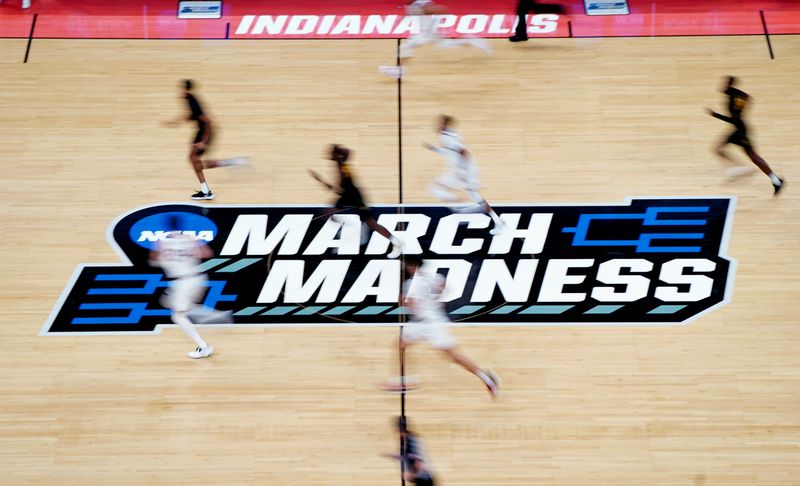By Lawrence Hurley
WASHINGTON (Reuters) - As the annual U.S. ritual of the "March Madness" college basketball tournament unfolds, the Supreme Court is poised to hear the National Collegiate Athletic Association's bid to preserve its limits on education-related compensation for student-athletes.
The justices next week are set to hear oral arguments in an appeal by the NCAA, the major governing body for U.S. intercollegiate sports, of a lower court decision last year that deemed the organization's rules anticompetitive under a federal law called the Sherman Antitrust Act.
Although the case does not involve direct payments to athletes, the broader question of player compensation has increasingly become a point of contention. College sports rake in billions of dollars in revenue but players remain tied to what critics call a fiction of amateurism.
During the current March Madness tournament, some players have protested on social media using the #NotNCAAProperty hashtag. Much of the focus is on a push to allow student-athletes to earn money from their name, image and likeness rights.
The case before the Supreme Court concerns non-cash payments related to education, including benefits such as computers, science equipment and musical instruments.
The San Francisco-based 9th U.S. Circuit Court of Appeals last year rejected the NCAA's argument that its limits on education-related compensation were needed to preserve the amateur character of college sports, and thus competition in the market between amateur and professional sports. The 9th Circuit did find that the NCAA could limit non-education-related compensation.
The nine justices will hear a scheduled one-hour oral argument via teleconference on Wednesday, with a ruling due by the end of June.
"It's another dent in the armor of this amateurism model that the NCAA has constructed," Michael Rueda, a sports lawyer who represents athletes, said of the litigation.
The case involves students who are players in the highest-level of college sports: NCAA Division I men's and women's basketball and those in the Football Bowl Subdivision. Football and basketball represent the major revenue-generating sports at the college level.
Joining the NCAA in defending the rules are major college sports conferences including all of the big-money so-called Power Five conferences: the Big Ten, Southeastern Conference, Atlantic Coast Conference, Big 12 Conference and Pac-12 Conference.
Lawsuits filed by college athletes in 2014 and 2015 were consolidated in a federal court in California. The players have argued that NCAA compensation limits represent a form of unlawful restraint of trade at a time when the leading intercollegiate conferences are bringing in billions of dollars in revenue.
"If they are not subject to the same antitrust rules as other businesses then they can do whatever they want. They can exploit the athletes as far as they like," said Jeffrey Kessler, one of the lawyers representing the players.
Lawyers for the NCAA said in court papers that there is precedent allowing it to maintain a distinction between college and professional sports and that, in order to retain that distinction, athletes must be genuine students and not be paid.
If education compensation is allowed, it is likely that colleges would use such payments as "vehicles for disguised pay-for-play," the lawyers said.
Donald Remy, the NCAA's chief legal officer, said in a statement that the case will determine whether the organization can "continue to have the ability to maintain the critical distinction between collegiate and professional sports, or whether a single federal judge will determine the rules for college sports."

Georgia, joined by eight other states, filed a brief backing the NCAA, saying that allowing the compensation would lead to some colleges having to increase fees or cut some sports. Eight other states and President Joe Biden's administration back the players.